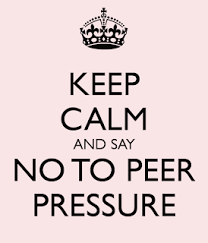As the Senior Rugby season draws to a close it is, perhaps, worth reminding ourselves of the value of the sport of Rugby to Schools.
Rugby at Bethany has become the mainstay of the boys’ sporting calendar and has usurped, to a degree, football at a senior level. There are many reasons why this has been the case but principally the main reasons for this are the reasons why rugby is so valuable in Schools.
First and foremost, to be successful on a rugby pitch requires the whole team to work together in all aspects of the game. There is no time to drop out or drift in and out of a match when everyone on the team is responsible for the defensive line and structure, or the attacking lines required from both forwards and backs at every breakdown.
It is no surprise that in his pursuit of Olympic Gold for Fiji at the Rio game that Ben Ryan’s mantra was ‘the standard you walk past is the standard you set’. This simply meant that everyone in the team had to be the witness to the standards of the group and, therefore, not shirk from those standards.
The New Zealand All Blacks and the British and Irish Lions highlight for every player the need to honour the jersey, to honour the sacrifice of those that have gone before and to live up to the expectations of all those who have got them to the point of playing for their respective sides.
Therefore, what rugby highlights is the value of community and how we work together towards a goal as a community, as a team and as a group we can achieve excellence.
At Bethany, being part of the Senior Rugby squad gives boys the opportunity to integrate across three-year groups and to knit together through this shared experience especially on the annual tour. This means that they have a shared bond which sees them build friendships that will last a lifetime.
The second value of rugby is that it teaches young people to persist. We can marvel at the way in which the referee in rugby is still treated with due respect, the referee is still called ‘sir’ by the players and coaches and the referee’s decisions are final and accepted with no argument.
Further, in order to be prepared to take the physical contacts and be able to be the support to the ball carrier working hard to get on their shoulder takes immense self-discipline. It would be very easy to shy away from tackling a big lad by diving for the tackle but not quite getting there, but this is what leads to injuries and equally lets your mates down.
Not getting up from the mud quickly in order to get back on the ball carrier can lead to him being isolated so it takes real persistence to be motivated enough to get there and be the support. All these lessons teach players the value of persistence, a value that is essential in life because it means that you can be someone people rely on.
At Bethany, the expectation for the Senior Rugby squad is that they come to training for two lunchtimes a week on top of the games afternoons which are usually dominated by fixtures. They have the opportunity to pit themselves against a range of School sides and Tunbridge Wells Rugby Club. In order to meet these obligations, they are required to persist even when the weather turns and they have lots of other commitments calling on their time.
Without a doubt, the reason why playing rugby is so important to the development of young people is that they have to put someone else first. That is also the Bethany way and long may that continue.




